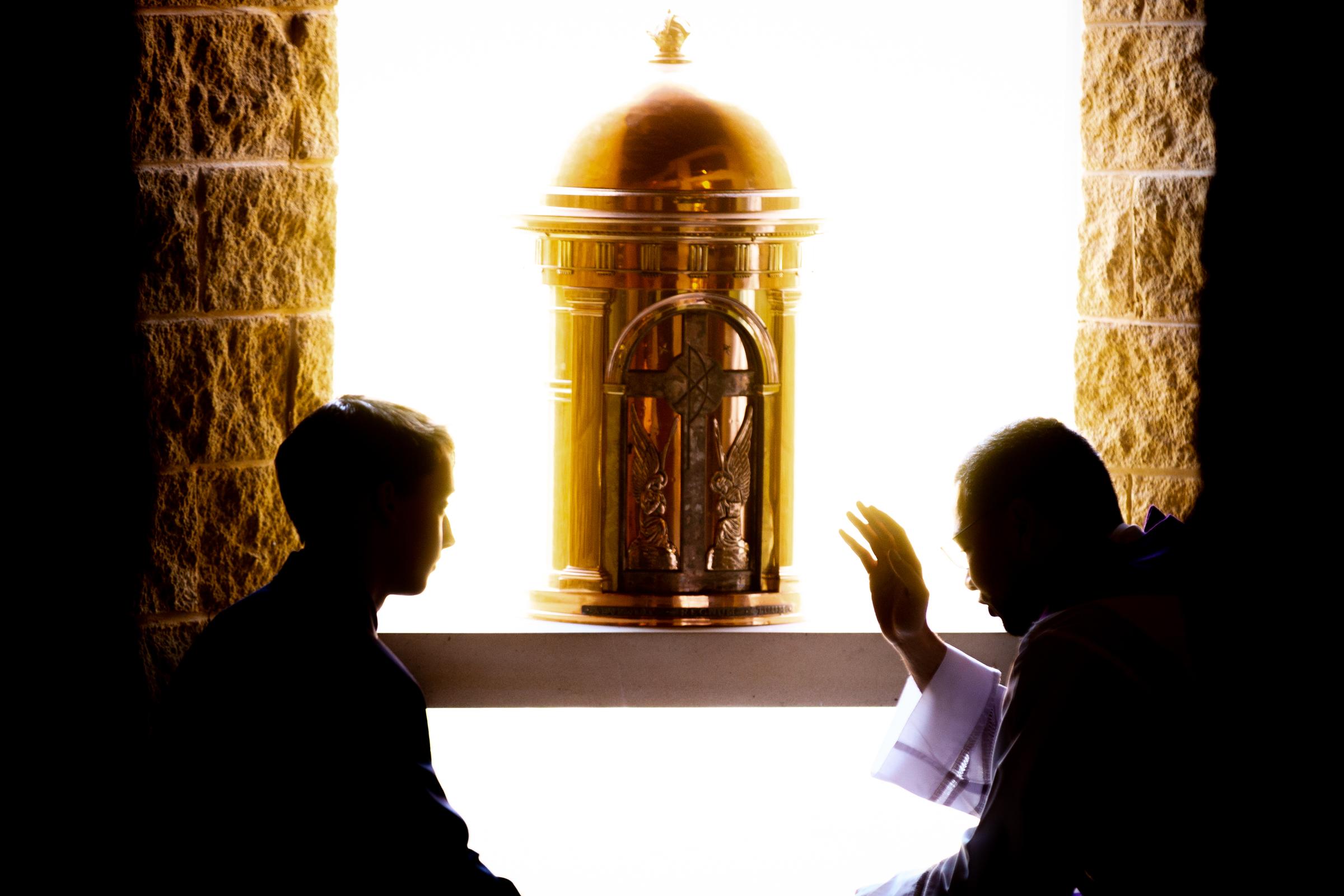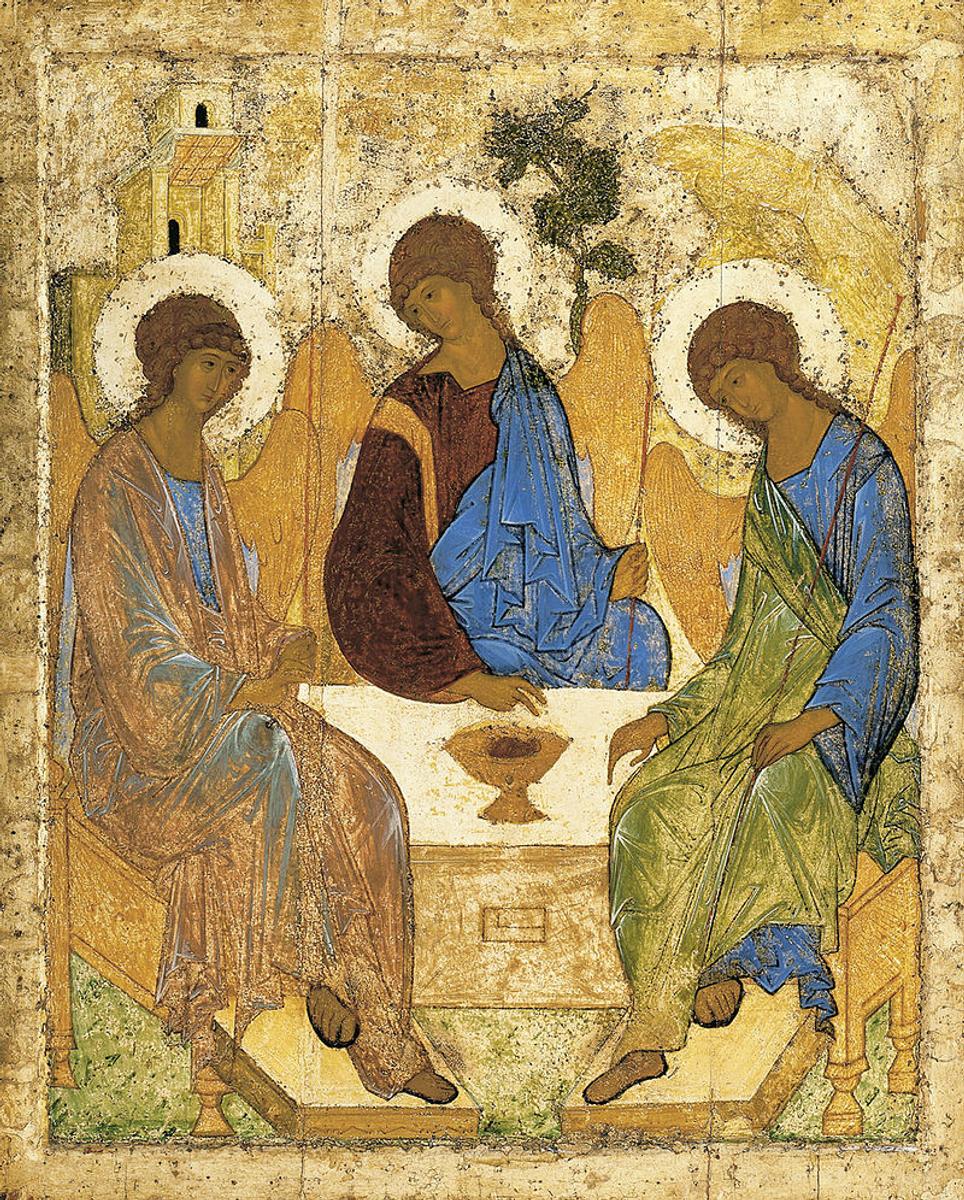Liturgy

Community Mass
All are welcome in the Chapel on Friday mornings at 8:00am for the College Community Mass. We especially welcome anyone who is new to the College or new to the celebration of the Eucharist. It is a joyful and user-friendly liturgy, prepared by students and with student-led singing.
Thank you to the students in Year 8 who did such a great job this morning. Next week the Mass will be prepared by students in Year 9.
After Mass finishes, around 8:30am, the celebration continues with coffee in the Circle of Friends Café. Parents are most welcome to stay.
Community Mass details
- College Chapel
- Fridays in term time
- Starts: 8:00am and concludes 8:30am
SACRAMENT PROGRAM
Updates for some of our local parishes
Saint Thomas Apostle, Claremont
Confirmation Friday 27 August
Reconciliation October
Please note that, due to current COVID restrictions on maximum capacity, priority for enrolment will go to families who are in the parish of Saint Thomas Apostle. Please see http://www.johnxxiii.edu.au/view/parent-resources/parish-sacraments
Enrolment forms are available from silvia.kinder@iona.wa.edu.au
St Mary Star of the Sea, Cottesloe/Corpus Christi, Mosman Park
Confirmation Sunday 7 November
Information Day: 5 August, 4-5pm Parish Centre
Enrolment information and contact details for the Sacrament Coordinator may be found here.
If you would like further information about the Sacrament Program:
- If your nearest parish is not listed, search the Archdiocesan website;
- Check the information available on the College website here
- Contact Mary-Anne Lumley mary-anne.lumley@cew.edu.au OR phone 9383 0408
GOOD NEWS for the Feast of the Holy Trinity
Matthew 18:16-20
The reflection for this Sunday’s Gospel is from Father Michael Tate and is used with permission. Rev. Prof. Michael Tate was a Senator for Tasmania from 1978-93 and Ambassador to The Hague and the Holy See from 1993-96. He is currently Vicar-General in the Archdiocese of Hobart and is an Honorary Professor of Law at the University of Tasmania where he lectures in International Humanitarian Law.
The Full Picture
Loneliness, real aloneness is a scourge in contemporary society. The fear of being cut off, quarantined from normal human contact, is felt to be dehumanising. I see this quite often in my hospital visits. It is dehumanising, and the reason lies in today’s feast day. We are made in the image and likeness of God. So, our image of God will greatly affect the way in which we conceive of being fully human.
If we think of God as solitary, totally One, then we may think of the best human being as being a person totally autonomous, self-sufficient, not dependent on others. A great temptation for me as an alpha male!
If we think of God as loving relationship, continuous communion, then clearly the ideal human being is one who lives in relationship with others, living in a companionable manner. So what is the truth of the matter? What does God ‘look’ like?
Over the millennia many civilisations and great religious systems have tried to sketch a picture of God. In particular, figures like Moses and Isaiah amongst the Jewish people had responded well to the promptings of the Holy Spirit. And yet, their portrait of God was incomplete. No-one knew what God really looked like.
During his ministry Jesus had accentuated some of the characteristics of God: forgiveness, compassion, hospitality. But the striking feature was his sense of intimate union with the One whom he called ‘Abba’, Father. So much so, that he claimed that if one saw him one saw the Father. He also had a very close relationship with the Holy Spirit.
The ‘full picture’ had emerged as the way in which we Christians had to paint God – truly a communion of loving relationships, Father, Son and Holy Spirit: Tri-Une, Tri-Unity, ‘Trinity’ for short.
This insight into the nature of God is important for human beings for two reasons. First, it satisfies the natural human yearning to know the truth about everything, even when we approach the border of what can be comprehended. Secondly, if we think of God as loving relationship, continuous communion, then clearly the ideal human being is one who lives in relationship with others, living in a companionable manner.
And this has eternal implications. If a person deliberately and constantly chooses to live a self-centred life then the danger is that they will end up at death unable and unwilling to choose relationship with God and others. They will end up in a Hellish existence.
When we live wholeheartedly with as much self-giving as is possible, with as much un-self-ishness as is possible, we are closest to Divine Life, and in fact are already living with a dimension of Heavenly existence.
At our Baptisms, sacramentally we were made participants in that Divine Life when, in fulfilment of Our Lord’s command, water was poured over us in the name (singular!) of the Father, and of the Son, and of the Holy Spirit. We remind ourselves of that threefold Name every time we enter the church, dip our hand in the holy water and bless ourselves.
Indeed we do so every time we cover the top of our body with the sign of the Cross, blessing ourselves ‘In the name of the Father, and of the Son, and of the Holy Spirit.’
© Michael Tate


